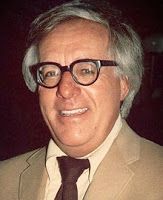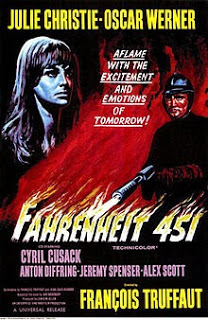All Things
The same post in Spanish
- Dark Benediction
Walter M. Miller Jr.Walter M. Miller Jr. was an American author of science fiction, known for a single book that has become a classic: A Canticle for Leibowitz, possibly one of the best science fiction novels of all time, at least among those in the apocalyptic...
- The Horizon Effect
We are well aware of the horizon effect: as we walk towards the horizon, the horizon gets further away. In science sometimes this effect seems to apply. Let us look at a few examples:Mycoplasma genitalium genetic mapSynthetic biology: In 1960, producing...
- Predicting The Scientific Future
Man likes making predictions of the future. Scientists are human beings, therefore they make predictions about the progress to be expected in various fields of research during the coming years, decades and even centuries. These predictions are widely...
- Interview With Manuel Alfonseca
This is the translation of an interview about my activity as an author of fiction, published in El Templo de las Mil Puertas 1. What drives an apparently scientific person to get involved on the wonderful task of...
- Science Is A Tool
Francis BaconThe utopia The New Atlantis, written by Francis Bacon, a contemporary of Galileo and pioneer of modern philosophy of science, describes a perfect society that would automatically arise from the practice of science, which the inhabitants of...
All Things
Predicting social future: political correctness
| 2001, A Space Odyssey |
As I discussed in a previous post, scientists are often wrong when they predict the future of science. Science fiction writers make mistakes too, especially when they are trying to predict technical advances. Consider the film 2001, A Space Odyssey, which got wrong almost all the developments proposed for that year. Fourteen years after the date in the title, we still don?t have a base on the moon, manned spaceships to Jupiter, artificial intelligence, or humans in hibernation.
We should remember Asimov?s third law of futurics, which states that predicting the social consequences of future scientific progress is more important than accurately predicting that progress. A SF story predicting cars, but not the parking problem, would not have been a good SF story.
In 1941, before Asimov formulated this law, Robert Heinlein correctly applied it in his short story Solution Unsatisfactory, which predicted the Manhattan Project, the atomic bomb, its use to end World War II and the subsequent nuclear stalemate between the great powers. Not bad, as an example of what you can do in a well-built science fiction story.
There are many examples of successful social predictions in science fiction.
 |
| Ray Bradbury |
- Aldous Huxley's novel Brave New World, published in 1932, is now closer to becoming real.
- In the same field of genetic manipulation, the film Gattaca also seems to have hit the mark.
- In 1953, Ray Bradbury published his novel Fahrenheit 451. Few have noticed that in this book Bradbury predicted successfully the ideology based on political correctness, that thirty years later would prevail in the Western world. In this novel Bradbury described a future society where people passes their time before TV sets and only read comics. Books are dangerous, and when found must be burned. Why? Because there is always a minority that will feel offended by any book whatever, as the chief fireman says in the novel.
 |
| Fahrenheit 451 film poster |
Tolerance is the favorite virtue in our society. The desire not to offend anyone seems the summit of tolerance. But this is a happy medium virtue, as described by Aristotle in his Ethics. One can sin against tolerance, both by default (by being intolerant), as by excess. But is there an excessive tolerance? Interestingly enough, it also becomes intolerance. In Fahrenheit 451, excessive tolerance leads society to become intolerant against books and those who read them.
Excessive tolerance destroys itself. An extremely tolerant person cannot tolerate any show of intolerance, thus automatically becomes intolerant (against intolerance). But there are some things that must not be tolerated, and to disguise this fact, a new unnecessary term has been created to rename intolerance, so that it looks like tolerance: zero tolerance.
Political correctness started as the wish not to offend anyone, but is sometimes applied with a double standard. Many people would never consider offending those who practice a religion (Judaism, Islam, Buddhism, animism...) or those who do not practice any, with one important exception: Christians can be offended with impunity, and if we protest, we are accused of not accepting freedom of expression. We must also be careful not to offend black, yellow, red skinned people... all except white. Also, beware of publishing anything that might offend women! Men, however, are fair game. Today, in Europe and North America, the true social pariah are the white Christian men. No one must take their feelings into account.
In this regard, I can provide a personal experience. One of my science fiction novels was rejected by a publisher, who told me that my book was sexist. Why? Because two of its characters are planning an act of genocide, the extermination of an intelligent species on a distant planet, but the woman is the instigator and the man is just carried away by her. Apparently, women cannot be wicked!
To discover whether my novels are really sexist, reading just one is not enough. All my books should be analyzed, counting how many of my wicked charactersare men and how many are women. I have taken the trouble to do it: 93% are men, 7% are women. It turns out that I could be accused of sexism against men. I accuse of sexism those who accuse me of being sexist against women.
Perhaps in the eighties political correctness was praiseworthy, but it has been perverted. As Bradbury predicted, the tolerance its supporters boast about often becomes an exercise of intolerance, a stifling form of censorship.The same post in Spanish
Manuel Alfonseca
- Dark Benediction
Walter M. Miller Jr.Walter M. Miller Jr. was an American author of science fiction, known for a single book that has become a classic: A Canticle for Leibowitz, possibly one of the best science fiction novels of all time, at least among those in the apocalyptic...
- The Horizon Effect
We are well aware of the horizon effect: as we walk towards the horizon, the horizon gets further away. In science sometimes this effect seems to apply. Let us look at a few examples:Mycoplasma genitalium genetic mapSynthetic biology: In 1960, producing...
- Predicting The Scientific Future
Man likes making predictions of the future. Scientists are human beings, therefore they make predictions about the progress to be expected in various fields of research during the coming years, decades and even centuries. These predictions are widely...
- Interview With Manuel Alfonseca
This is the translation of an interview about my activity as an author of fiction, published in El Templo de las Mil Puertas 1. What drives an apparently scientific person to get involved on the wonderful task of...
- Science Is A Tool
Francis BaconThe utopia The New Atlantis, written by Francis Bacon, a contemporary of Galileo and pioneer of modern philosophy of science, describes a perfect society that would automatically arise from the practice of science, which the inhabitants of...
